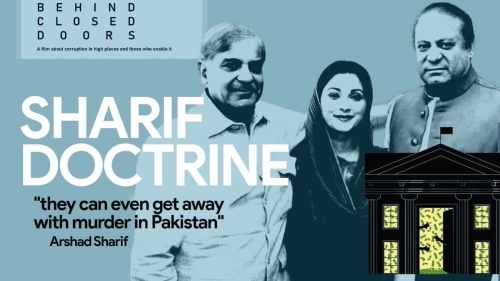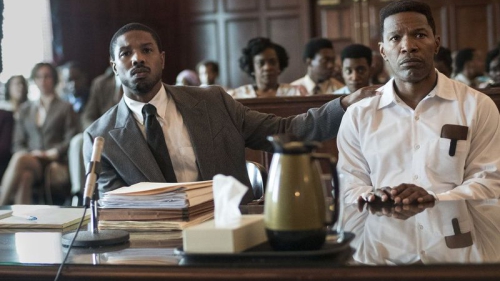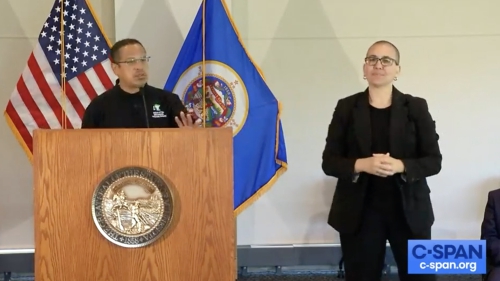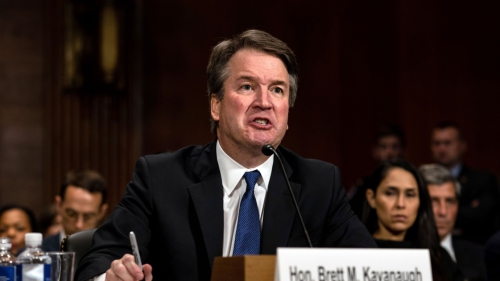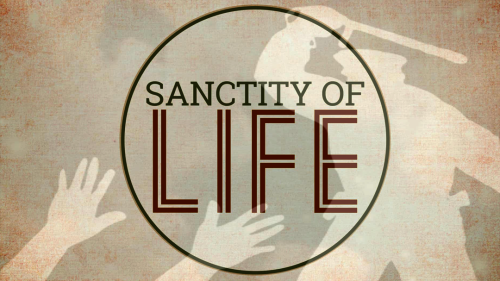The Empowerment Project

 |
Finally, perhaps, this is bigger than personal safety. It's about rescuing our humanity.
Two images compete for my attention as I write this, a month after Newtown, a week after the shooting at a high school in Taft, Calif., with hundreds of murders in between. One image is of Robbie Parker, father of slain 6-year-old Emilie, offering public condolences to the family of the shooter and pleading, through his tears, "Let it" - the murders of 20 children and six adults at Sandy Hook Elementary School - "not turn into something that defines us, but something that inspires us to be more compassionate and humble people."
The other image is of Americans flooding gun stores from coast to coast, buying semiautomatics and other weapons in the wake of feared new gun laws.
This land is your land, this land is my land. Whatever dialogue, whatever change, emerges from the slaughter at Sandy Hook must embrace not only a father's torn heart and yearning to forgive, but the gun-store fear stampede and people's desire and need to protect themselves. I confess to not knowing how they can reconcile, only that they must - if we are to build a new world that addresses both long- and short-term needs for safety, fairness, sustainability and human connection.
"Eleven of my 40 years in the justice system were spent as a police officer," William Cox wrote to me, responding to what I am calling the Empowerment Project. Last week I had asked people to send me stories of unarmed dispersion of danger, and such stories have begun flowing in. The idea is to celebrate human empowerment. Our choices are not either to shoot back or cower in the corner, which seems to be the limit of the pop-culture debate. A sense of empowerment does not require being armed; it requires being present and aware.
". . . and there were at least five times when I could have legally shot someone," Cox's letter continued, "including once in a face-to-face encounter with a man with a gun who had just shot a woman. In each case, I was able to convince the person to drop their weapon and to avoid having the death of another on my conscience."
This begins to set the stage for what's possible. "Courage, I had to learn," peace activist Robert Riversong wrote to me, describing his encounters with angry counter-protesters, "did not mean the absence of fear, but the transcendence of fear and the maintenance of the humanity of all parties."
Libbe H., a five-foot two-inch woman and survivor of childhood sexual abuse, wrote: "I spent much of my life afraid to be out in the world by myself. Even going to an unfamiliar restaurant at night seemed dangerous. It seriously stunted my life for many years."
Then, in her 30s, she took two courses from Impact Personal Safety, and learned how a woman can stand up for herself. "I've used these techniques perhaps four times in 20 years," she wrote, describing the most confrontational moment, an encounter with an angry driver at a gas station, who thought she had cut him off:
"As I began pumping gas, he came barreling towards me. Instead of cowering, running, crying or anything else 'typically female,' I stood my ground, put out my right arm/hand in the 'stop' position and said, 'Stop!' It was like he had run into a wall. . . . He then started yelling at me. . . . I remained in the 'stop' position and kept my running response of, 'You need to back away. You need to go now. You are not allowed to talk to me that way. You need to back up and go back to your car. . . .'"
If he'd given an indication he was going to physically attack her, she would have dropped to the ground, kicked out at his knee and further protected herself. "But by this time others in the crowded gas station were watching and he realized I wasn't going to give way, so he cursed me out and walked away. I finished pumping my gas and left."
While some of the people who wrote to me had studied martial arts and other self-defense techniques, others had not, but managed to contain or defuse dangerous situations simply by refusing to act like victims. "Take the attitude of 'What the hell do you think you are doing?!' rather than 'Why me?'" wrote Kathryn Hanson. She added: "Predators are most generally cowards."
This observation was brought up in one way or another by a number of correspondents. Ann T., for instance, wrote about an armed robbery as her family was leaving a motel room. "The robbers were as scared as we were," she said. "When I realized this, I also realized they didn't want to hurt anyone, they just wanted money, or something to pawn. This realization helped me stay calm."
The notion that assailants are vulnerable is the key, and it contradicts the gun lobby's "beware of monsters" motif. The shooting last week at Taft Union High School bears this out. A deeply troubled 16-year-old student brought a 12-gauge shotgun to school and seriously wounded a boy in one classroom, but before he could do further harm, the teacher and an administrator succeeded in convincing him to stop shooting and hand over his weapon. "Bryan, don't shoot," the teacher said.
I pause here, as the boy and his teacher stare at each other and their humanity fills the terrifying interval. "I don't want to shoot you," the boy says.
Please write and tell me your stories.
*****
Robert Koehler is an award-winning, Chicago-based journalist and nationally syndicated writer. His new book, Courage Grows Strong at the Wound (Xenos Press) is now available. Contact him at koehlercwgmail.com, visit his website at commonwonders.com or listen to him at Voices of Peace radio.
2013 TRIBUNE MEDIA SERVICES, INC.






